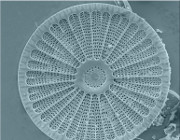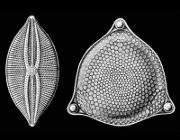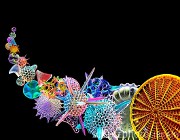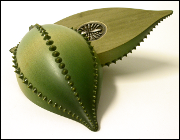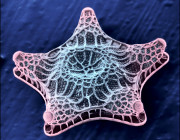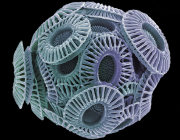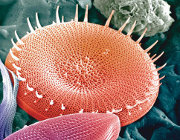Home :: List of Publicly Available Datasets :: Amphidinium carterae CCMP1314
Amphidinium carterae CCMP1314
Downloads:
| Principle Investigator(s) | Senjie Lin |
|---|---|
| External sample ID | AmpcaSL1 |
| NCGR Sample ID | MMETSP0398C |
| Sample accession number | CAM_SMPL_002537 |
| Assembly accession number | CAM_ASM_000355 |
| Combined Assembly Name | Amphidinium-carterae-CCMP1314 |
| Genus | Amphidinium |
| Species | carterae |
| Strain | CCMP1314 |
| Clonal | Yes |
| Axenic | No |
| Prelim. NCBI Taxon ID | 2961 |
| 18S rRNA | |
| Importance of organism and transcriptomes | Compared to the other dinoflagellate species we nominated by this group of researchers, Amphidinium carterae has the following unique characteristics that makes it of high interest to sequence its genome-wide trasncriptome, 1) similar genome size (~3 gb) and similarly basal position in dinoflagellate phylogeny as Symbiodinium kawagutii, 2) free-living (unlike S. kawagutii), 3) produces toxins (unlike S. kawagutii), but the toxins are polyketide type (unlike toxins from Alexandrium), but different from the polyketide toxin produced by Karenia brevis, 4) photosynthetic with peridinin-containing plastid, 5) some EST data has been done, mainly full-length cDNA clones (~20,000 total clones, generated in the PI?s laboratory), which can be very useful templates for assembly of Illumina reads being proposed. |
| Additional citations and references | |
| Environmental Data | |
| Primary citation for organism's characterization, if available | Zhang, H., Bhattacharya, D. and Lin, S. 2007. A three-gene dinoflagellate phylogeny suggests monophyly of Procentrales and a basal positon for Amphidinium and Heterocapsa. J. Mol. Evol. 65: 463-474. |
| Latitude | 41.56 |
| Longitude | 70.583 |
| Sample collection site | Atlantic_Ocean |
| Other collection site info | Falmouth Great Pond, Falmouth, Massachusetts |
| Habitat | marine habitat |
| Country | UNITED STATES |
| Experimental Data | |
| Date of experiment | 15-MAY-11 |
| Growth medium | f/2 amended seawater |
| Temperature (ºC) | 20 |
| Salinty (psu) | 28 |
| pH | 8.1 |
| Light (µmol photons / m2 / sec) | 200 |
| Day portion of day:night cycle in hours | 14 |
| Night portion of day:night cycle in hours | 10 |
| Nitrate (μmol/L) | 882 |
| Phosphate (μmol/L) | 36.2 |
| Trace elements (total) (nmol/L) | 11.7 |
| Investigation type | Eukaryotes |
| Other experimental metadata available | submitted is dinoflagellate spliced leader based cDNA prepared when culture was enriched in G1 phase. |

